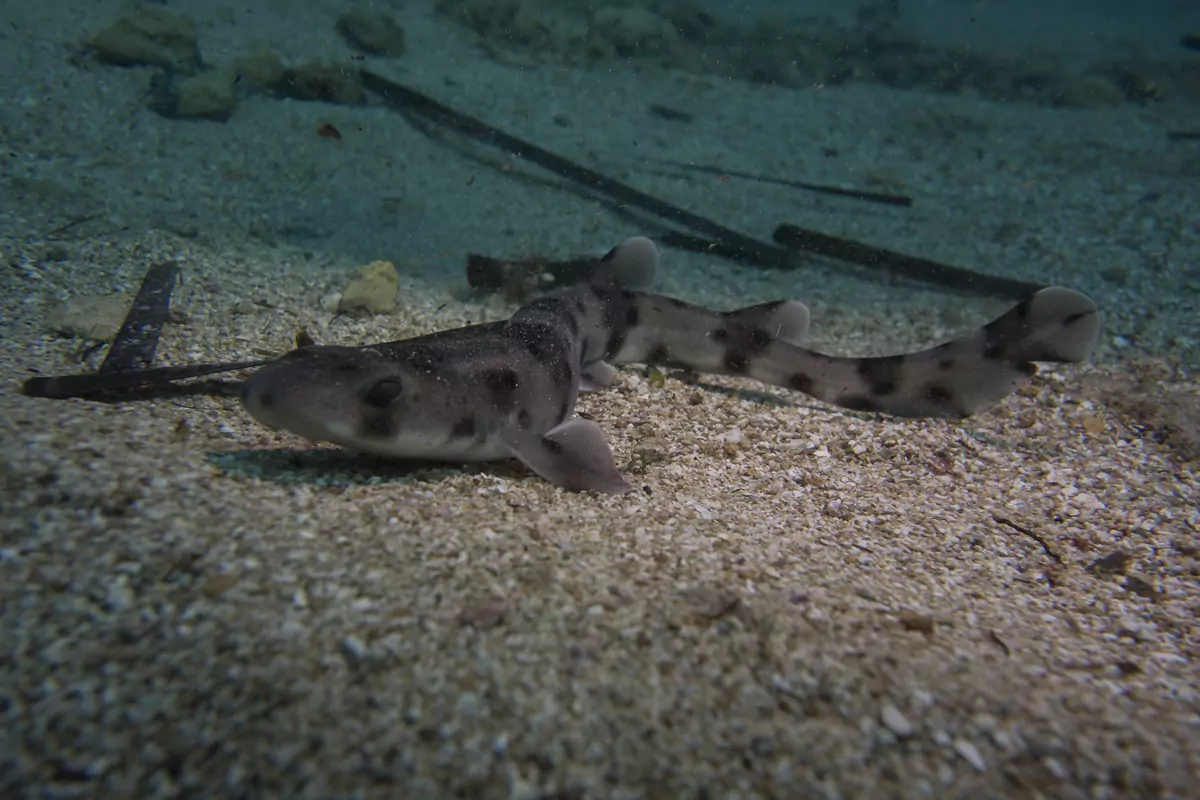Shark and ray numbers are falling dramatically in the Mediterranean Sea, a place where they have been vital parts of the marine ecosystem for millions of years. According to a new study published in Biological Conservation, overfishing, illegal fishing and the rising demand for shark meat are continuing to push these species toward extinction despite conservation attempts.
Current conservation efforts are falling short of expectations in preserving Mediterranean shark populations, according to the ‘Tracking implementation of shark-related measures and actions in the Mediterranean region in the context of international law’ report published recently in Biological Conservation, a leading international, peer-reviewed conservation science journal. It is understood to be the first comprehensive assessment of conservation actions for Mediterranean elasmobranch populations, which include sharks, rays and skates.
Spanning 22 coastal nations from Spain and Morocco in the west to Israel and Syria in the east, the study identified over 200 measures designed to protect these species. These range from national legislation to efforts led by non-governmental organisations, with European Union countries, particularly Spain, showing the highest number of initiatives.
But in spite of these measures, the report has exposed significant gaps in enforcement and monitoring, particularly in non-EU countries in the Mediterranean basin. While 63% of the efforts are government-led, there is no centralised system for tracking progress, leaving many species vulnerable.
See more: Great white shark spotted off the coast of the Côte d’Azur
Dr Lydia Koehler, an Associate Lecturer at the University of Plymouth and a member of the IUCN World Commission on Environmental Law, as well as co-author of the study, has emphasised the stakes involved, saying, “Sharks have been part of the marine ecosystem for millions of years with an evolutionary history that predates the dinosaurs. There are over 1,000 species of elasmobranchs worldwide, and they fulfil a variety of ecological roles, whether as apex predators that maintain healthy populations of prey species or a food source for other predators. However, many shark species in the Mediterranean have seen drastic declines in the past few decades, with over half of the species being threatened by extinction, largely due to overfishing and related pressures such as bycatch. Finding effective ways to conserve them is, therefore, of critical importance.”
Illegal and unregulated fishing remains a significant driver of this decline. Sharks are increasingly being landed either as bycatch or intentionally to meet the rising global demand for shark products. The lack of control and oversight at landing sites exacerbates the problem, prompting researchers to call for better monitoring, public education and incentives for fishermen to adopt less harmful practices.
Dr Jason Lowther, an Associate Professor of Law at the University of Plymouth and co-author of the study, has highlighted the uneven efforts among Mediterranean nations, noting, “This study has shown substantial differences in countries’ efforts around shark conservation. That may be linked to access to resources, available expertise and capacities, and a general willingness to develop and implement measures in light of other competing pressures. Achieving positive outcomes for these species requires not only government support, but also sustained political will across election periods and a steadfast long-term commitment to driving change. It also requires the integration of communities in the Mediterranean region, and our view is that this work presents a starting point in that process.”
The study has underscored the need for greater transparency, stronger regional cooperation and increased funding to support conservation actions. Existing Marine Protected Areas could also play a pivotal role if their objectives are adapted to include shark conservation. Improved compliance with bycatch regulations and coordinated research efforts are also essential to understand population trends and pressures more effectively.
With over half of Mediterranean shark species now threatened with extinction, the research highlights the urgency of aligning conservation strategies with legislative enforcement.
Read related:
The Med Fund to back more marine protected areas in the Mediterranean
Monaco Life is produced by real multi-media journalists writing original content. See more in our free newsletter, follow our Podcasts on Spotify, and check us out on Threads, Facebook, Instagram, LinkedIn and Tik Tok.
Photo credit: Rasmus Loeth Petersen
